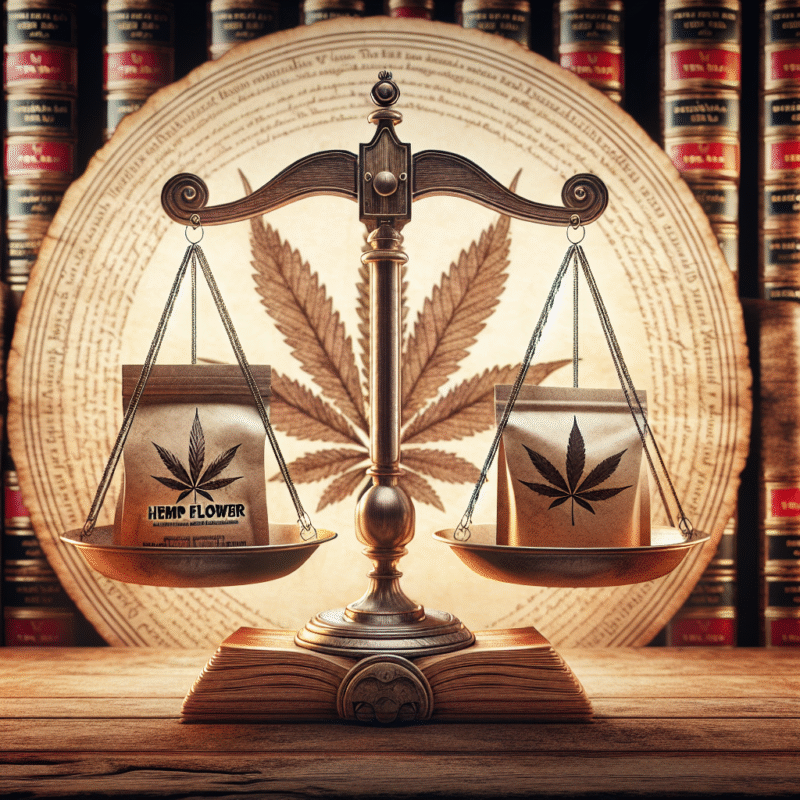Is Hemp Flower Legal? Unpacking Texas Regulations for Consumers
In recent years, hemp has rapidly gained popularity due to its versatility and potential benefits. From textiles to food products and wellness supplements, the hemp industry is booming. However, as consumer interest continues to grow, many are left questioning the legality of hemp flower, especially in states like Texas, where regulations can be complex. This article aims to clarify the legal status of hemp flower in Texas and what consumers need to know.
Understanding Hemp vs. Marijuana
First, it’s important to differentiate between hemp and marijuana. Both plants belong to the Cannabis sativa species, but they have distinct characteristics:
-
Hemp: Contains less than 0.3% tetrahydrocannabinol (THC) by dry weight. It is primarily used for industrial purposes, including fiber, seeds, and oil.
- Marijuana: Contains more than 0.3% THC and is often associated with psychoactive effects.
This distinction is crucial for understanding the legality of hemp flower, as laws primarily focus on THC content.
The Legal Landscape in Texas
Federal Legislation
The 2018 Farm Bill legalized hemp at the federal level, removing it from the list of controlled substances as long as it contains less than 0.3% THC. This legislation paved the way for states to develop their own regulations concerning hemp cultivation and distribution.
Texas State Law
In Texas, the legal status of hemp flower falls under the Texas Agriculture Code, which was revised following the passage of the 2018 Farm Bill. Here are the key points regarding the legality of hemp flower in Texas:
-
Hemp Production: Texas legalized the production of hemp in June 2019, under the Texas Hemp Program. Licensed growers can cultivate hemp plants that meet federal THC regulations.
-
Hemp Flower: Hemp flower, which refers to the buds and leaves of the hemp plant, is legal to possess, sell, and purchase in Texas, provided it contains no more than 0.3% THC.
-
Retail Sales: Retailers can sell hemp flower and related products, provided they comply with state regulations, including packaging and labeling requirements. These products must clearly indicate the THC content.
- Delta-8 THC: A significant point of confusion for consumers involves Delta-8 THC, a cannabinoid derived from hemp. Although Delta-8 is often synthesized from hemp-derived CBD, its legality can vary. As of now, Texas has not explicitly banned Delta-8, which has led to its availability in various retail outlets.
Potential Legal Risks
Despite hemp flower’s legality, consumers should be aware of potential legal risks:
-
THC Testing: As hemp products are not uniformly regulated, consumers may risk purchasing hemp flower that exceeds the 0.3% THC threshold. This could lead to legal issues, particularly if tested in contexts such as employment drug screening.
- Local Laws: Municipalities can enact stricter regulations than the state, which could limit the sale or possession of hemp flower. It is advisable to check local laws before purchasing.
What Consumers Should Know
-
Vetting Sources: When purchasing hemp flower, consumers should source from reputable suppliers who provide lab testing results. These tests confirm THC content and the absence of harmful substances.
-
Understanding Uses and Effects: While hemp flower is not intoxicating like marijuana, it can offer various therapeutic benefits attributed to cannabinoids such as CBD. Educating oneself on the potential effects can lead to a more informed purchasing decision.
- Compliance with Regulations: Staying updated on evolving regulations is crucial. As the hemp industry grows and matures, policies may change, affecting legality and availability.
Conclusion
Hemp flower is legal in Texas, provided it meets the federal THC regulations. Consumers are encouraged to educate themselves about hemp products, understand local regulations, and purchase from reputable sources. As the industry expands, clarity on these regulations will likely continue to evolve, making it crucial for consumers to stay informed and compliant. Whether seeking wellness benefits or simply curious about hemp, Texas residents can confidently explore the world of hemp flower within the bounds of the law.

